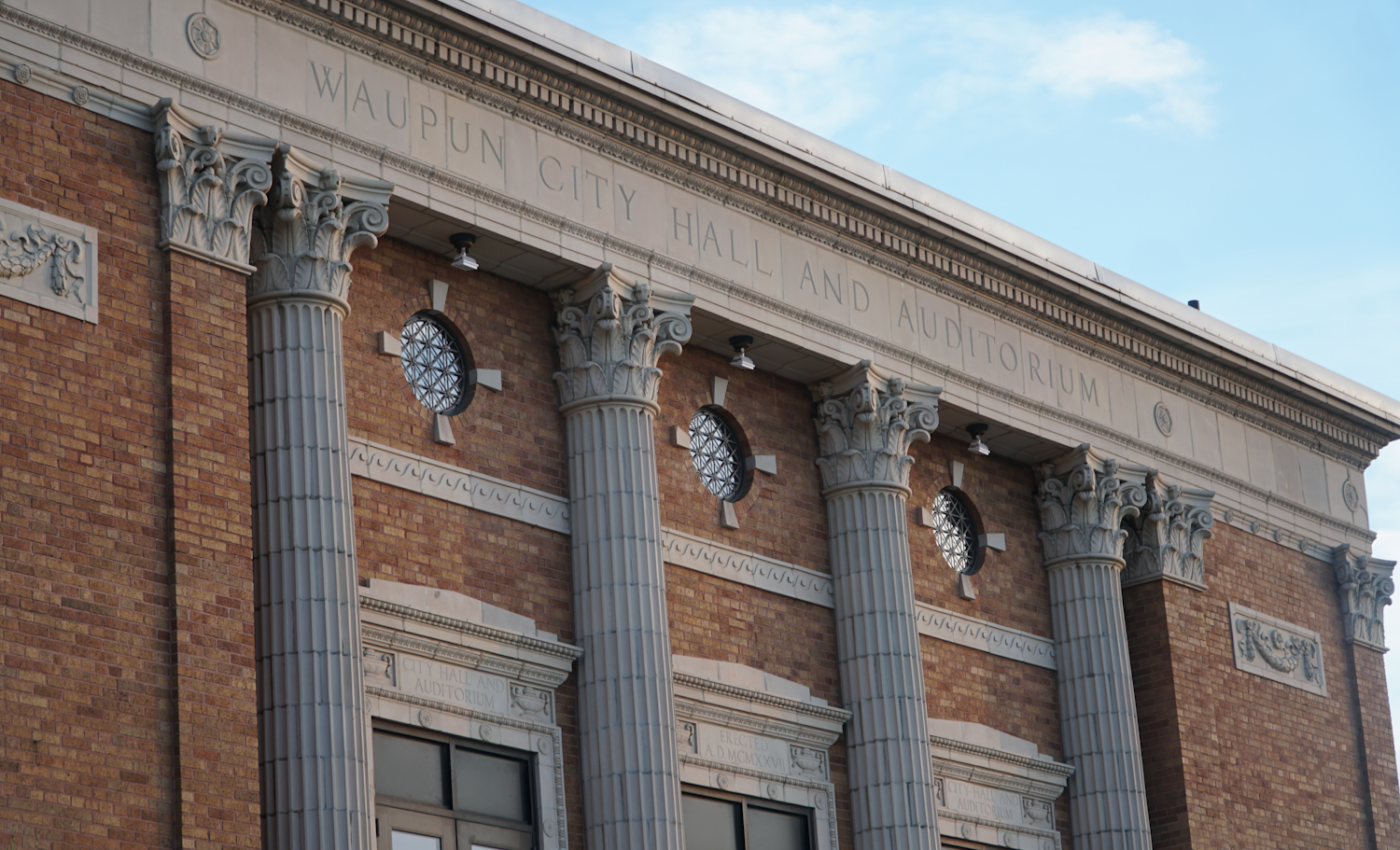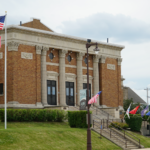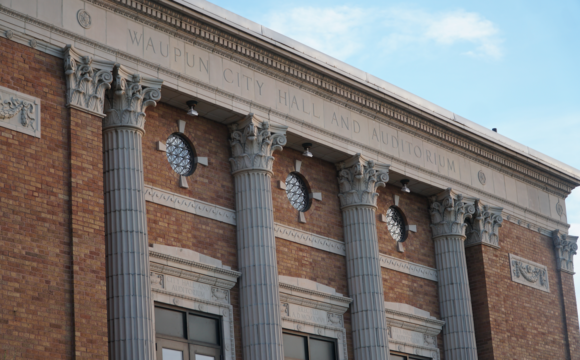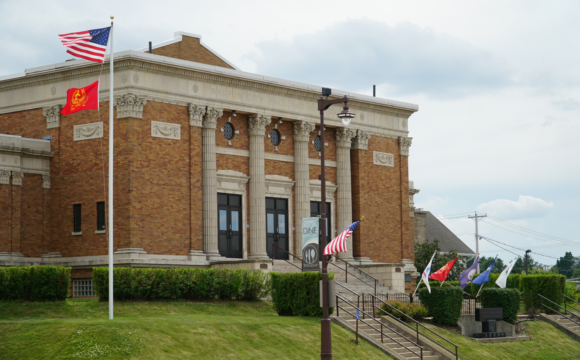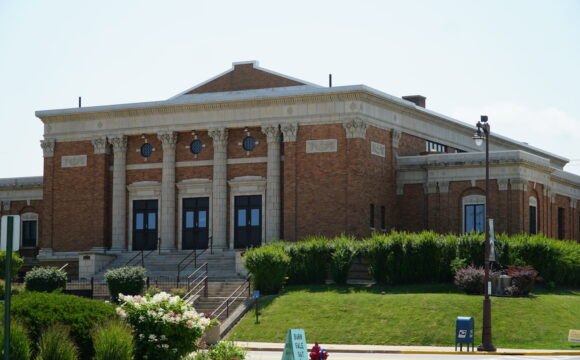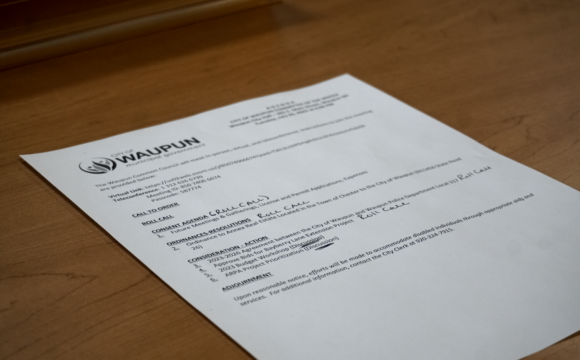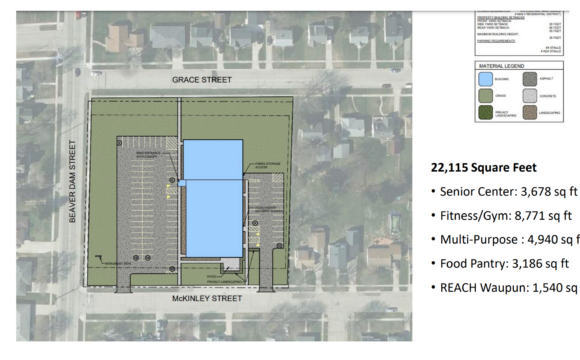WAUPUN — Last week the Waupun City Council approved the new stormwater pond study previously discussed at the Board of Public Works last month.
The discussion was held at the Special Council Meeting held October 29.
At the October 8 Board of Public Works meeting, the Board voted to conduct new stormwater studies for two specific areas: Edgewood Dr between Harmsen Dr and Beske St for $11,500, and the Hazel-Pattee-W Lincoln area for $13,250.
According to the Board, the studies would determine the best course of action, costs for new infrastructure, and potential alternatives. This was then sent to the Council for approval.
Alderman Jason Westphal first asked why the City is paying for a study when they already know that the city needs more ponds and generally where they need to go.
Director of Public Works Jeff Daane talked about several planned projects and areas of concern, but that they would need more solid plans before building new ponds.
“The study is going to give us numbers,” Daane said. “Like if you build this pond two acres large, it’ll be able to handle this amount of water; we’re going to have to put this pipe in at 30 inches to handle this kind of water—that’s what it will handle.”
Daane also pointed out that there haven’t been any studies on the Hazel-Patee-W Lincoln area before which will be able to handle the stormwater runoff from the surrounding farmfields, which is what the first study will focus on.
“I don’t disagree that we don’t have money to build the pond, but some of the work on the pond is going to cost in the millions or hundreds of thousands of dollars, and $25 thousand is pretty reasonable and will get us in the right direction,” Daane said.
City Administrator Kathy Schlieve elaborated on the previous studies done for stormwater ponds, including one in 2017 that was about the community as a whole but did not focus on the current areas of concern—which is what these new studies will help with. Another study in 2015 focused on the Rock River, particularly The Rock Golf Club and Gateway Dr.
Alderman Pete Kaczmarski asked Daane if the City is required to do these studies when applying for grants, which they are. Daane said there are a number of grants that municipalities can get from the state if the submitted plans conform to the state standards.
He explained the process, pointing out that the size of the project also impacts the grant where they don’t bother applying for many smaller projects. Most grants don’t require a full engineering workup, but will require some kind of hard data. He also said that they were looking at getting a grant sometime in the next year.
Kaczmarski then asked how the City determined which areas needed attention, which Daane said was based on whether roads had to close during the flooding events.
Mayor of Waupun Rohn Bishop added his personal experience during the flooding back in June. He said he didn’t know what is the City’s responsibility when it comes to the flooding, and that due to all the things discussed at the meeting—increased rainfall, high bedrock, low soil—Waupun is just bad with flooding.
Westphal rhetorically asked about what’s the point in building more ponds when the City can barely afford the ones they already have, agreeing that if the City needs to add more ponds they just will have to.
Mayor Bishop added that the City can’t put ponds just anywhere in the community. He pointed out that one of the studies found that The Rock Golf Course, historically a marshland, could be entirely converted into a 100 acre 6 foot deep stormwater retention pond and it would only lower the water level of the Rock River by one inch.
Siebers added that if the City knows the engineering behind them they are less likely to make mistakes, to which Daane added that if the City is forward thinking about the process, they save money, time, and effort in the long run.
Kaczmarski asked Utilities Director Steve Brooks if there was an ongoing septic study, which there are regularly every year. Fire Chief BJ DeMaa added that the groundwater during that flooding was already high, which made the flooding worse than it would if it rained today. Brooks also added that they wanted to have a system-wide sanitary study, which they will request in the 2025 budget.
Mayor Bishop wanted to emphasize that the City was taking the flooding issue seriously. He also pointed out that when he floated the idea of a stormwater fee people were mostly receptive as they are more willing to pay a few extra dollars than to have their basements flood.
On motion of Alderwoman Ledesma, seconded by Alderwoman Kunz, to approve the use of stormwater funds in the amount of $24,750 for the two flood studies. The motion passed 5-0, Matoushek not in attendance.
Following that discussion, the City Council then approved an Assist Agreement contract with JF Brennan for repairs to the Mill Pond Dam for the amount of $15,669. According to the agenda item, JF Brennan will help set up and take down the cofferdam needed to repair the dam’s gate valve.
“This agreement is a worst-case scenario and it could come in at a lesser cost if things go well,” the agenda item says. “The city will provide the super sacks and sandbags. The city will also hire the crane to assist in lifting the sacks. We continue to work with the WDNR on securing the permit needed for the work. Once the new gate valve arrives we will coordinate the work with both Sabel Mechanical and J.F. Brennan.”
Included in the meeting agenda packet was an outline of projected services. Motion Siebers, second Kunz, passed unanimously.
Also discussed at the meeting were the 2025 budget and changes to the 2025 fee schedule, the purchase of a new snow plow truck for the DPW and a new ladder truck for the Fire Department, and proposed changes to the bicycle ordinance.

